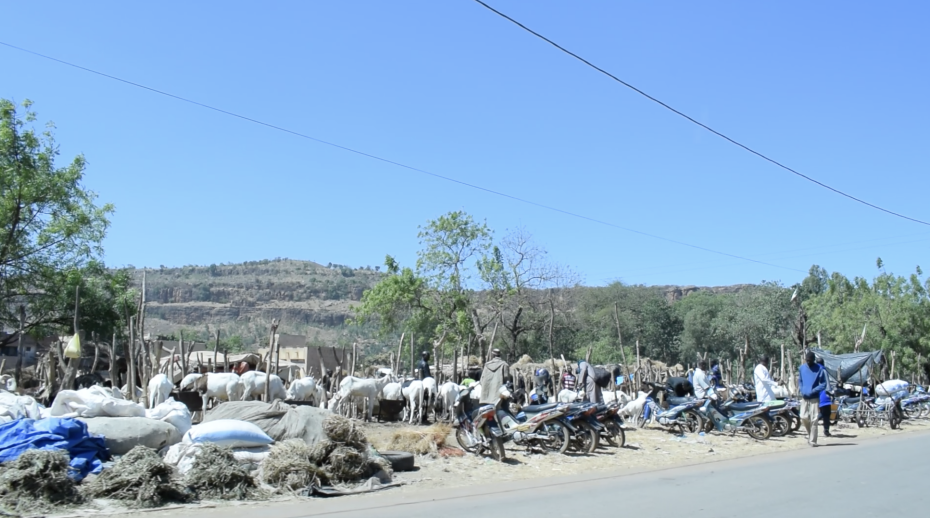
(Bamako, 31 January 2019) — Today, Malian civil society members and their partners SIPRI and CONASCIPAL present the first Civil Society White Book for Peace and Security to help address security challenges for the Malian population. Based on research conducted over a 3-year period across the country, detailing how Malian men and women from all the regions of Mali perceive security priorities and prospects for peace, the book contains policy options and concrete recommendations for long-term stability in the country.
The White Book highlights the fact that there is no single conflict in Mali. Rather, the security crisis is made up of numerous interacting local and micro-local conflicts. The needs and expectations of the populations are not the same but vary according to the geographical zones, the sex, the age or the rural or urban character of the populations. The book stresses the need to recognize this diversity, to adapt approaches to different strands of the population, and to include local communities in the formulation and the implementation of security strategies.
The report describes a growing gap between the security and development priorities of local communities on the one hand, and national and international policy responses on the other. In the northern and central regions in particular, the authorities seem to provide mainly military responses (led by Mali's Defense and Security Forces (FDS), MINUSMA, Barkhane and FC-G5 Sahel), while populations demands for humanitarian aid, local economic development, basic services and better social cohesion are constantly growing. ‘Addressing the situation in Mali will need more than a purely military solution’ says Dr Bréma Ely Dicko, scientific coordinator for the White Book Committee, ‘understanding the complexity of the local situations is a necessary first step.’
The White Book also underlines the need to tackle the daily insecurities as well as the better known global threats such as the presence of violent extremist groups or armed mobilisation. Malians economic and social lives are severely affected by this daily insecurity, with consequences on their economic well-being and their vulnerability to shocks. Vulnerable groups—especially the women and youth—are more affected and need tailored support from authorities.
A further recommendation is to focus on structural solutions rather than quick impact projects. Mali and its partners must focus their actions on the deep and chronic causes of people's frustrations, rather than just the symptoms of the crisis. An essential element here is to rebuild the trust between the government and the population. ‘Short-cut solutions will not help Mali’, says Annelies Hickendorff, Researcher of the SIPRI Sahel and West Africa Programme, ‘it is only by using tailored solutions addressing the needs of local populations that long-term peace in Mali will be achieved’.
Civil society organisations can play a key role in fostering the dialogue between the security forces and the populations these need to protect. The White Book recommends that the governance of the security sector must embrace a culture of ‘service to the people’ and respect for human rights. In addition, the understanding and knowledge of the security forces’ mandate and their responsibilities to civilians should be improved.
About the publication
The White Book of the Civil Society for Peace and Security in Mali is an advocacy tool with the objective to make the voices of the Malian people heard in the elaboration of security measures. Based on research conducted by the Stockholm International Peace Research Institute (SIPRI) and the National Civil Society Coalition for Peace and the Fight Against Proliferation of Small Arms (CONASCIPAL), this book presents an inclusive and in-depth analysis of the reality of the security challenges that people face in their daily lives.
About the White Book Committee
The White Book Committee consists of a broad range of key actors in Mali with representatives from five major national civil society organisations, five main research centres on peace and security, three former Malian prime ministers, and the media. This broad-ranging membership ensures that it is inclusive and representative of the variety of views within the Malian civil society.
The organizations are: (1) National civil society: The National Council of Civil Society of Mali (CNSC Mali), the Forum of Mali's civil society organizations (FOSC Mali), the Convergence des Femmes du Mali, the Conseil National Youth Foundation of Mali (CNJ Mali), the Coalition of African Alternatives to Debt and Development (CAD Mali); (2) Main research centres: Malian Alliance for Rebuilding Governance in Africa (ARGA - Mali), West African Network for Peacebuilding (WANEP Mali), Mali Research-Action Institute for (IMRAP), Center for Local Knowledge Research (POINT SUD), and Center for Analysis and Research of the Sahelo-Saharan Space (CARESS) (3) The media: The house of the press; and (4) Three former Prime Ministers: HE Ms. Cissé Mariam Kaïdama Sidibé, HE Mr. Ousmane Issoufi Maïga, and HE Mr. Ahmed Mohamed ag Hamani.
About the project
The project, Building a lasting peace in Mali: contributions of civil society to security policies for the population (Construire une paix durable au Mali: contributions de la société civile aux politiques de sécurité des populations), collaborates with local stakeholders and civil society organizations in 36 Malian municipalities from the 10 regions and the District of Bamako to monitor and document the security situation, its perceived causes and suggestions for policy action.
Le projet est financé par l’Agence Suédoise de Coopération Internationale pour le Développement (Sida).
Please contact SIPRI Communications Director Stephanie Blenckner, with any media inquiries (blenckner@sipri.org, +223 70 10 23 28 or +46 708 655 360).